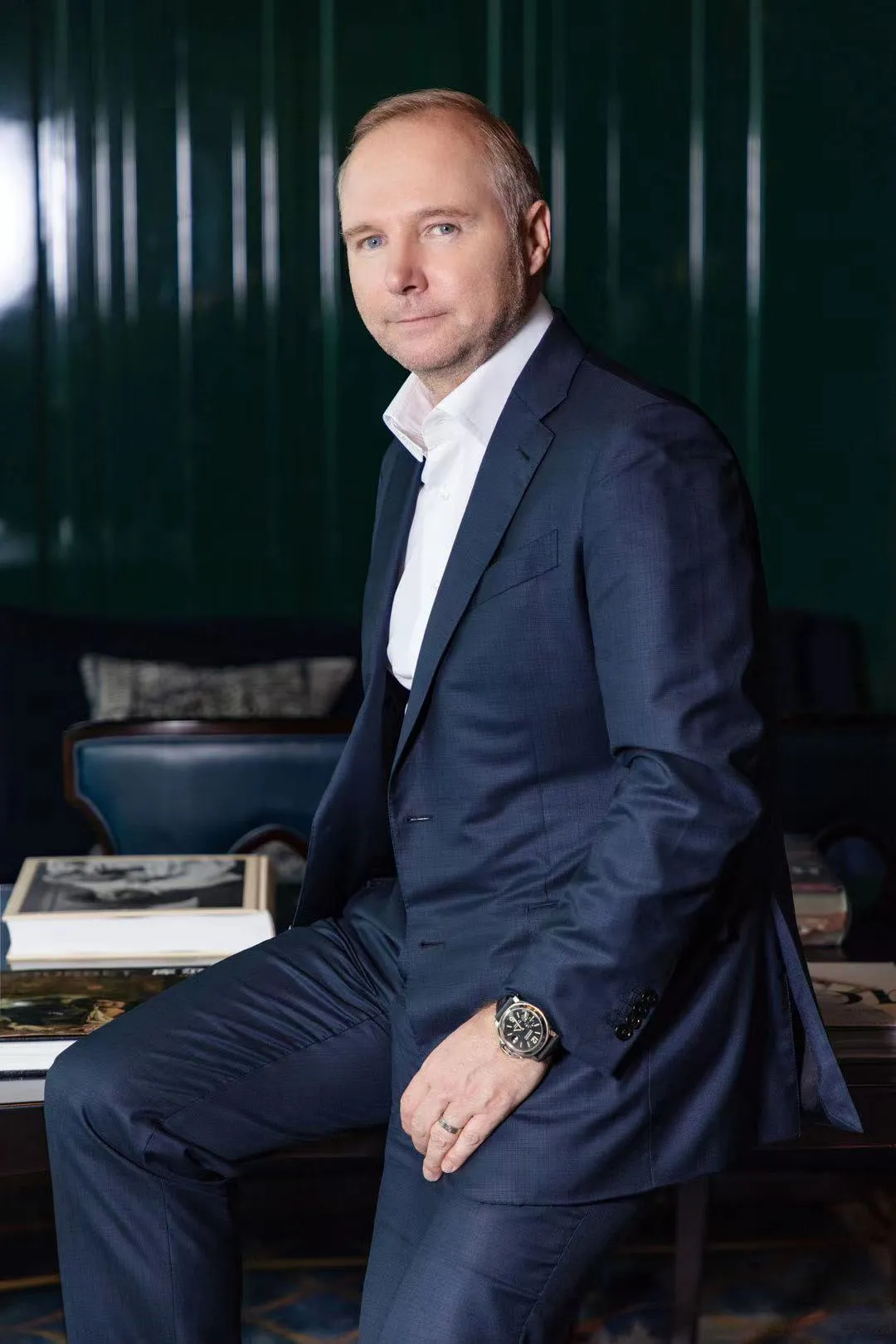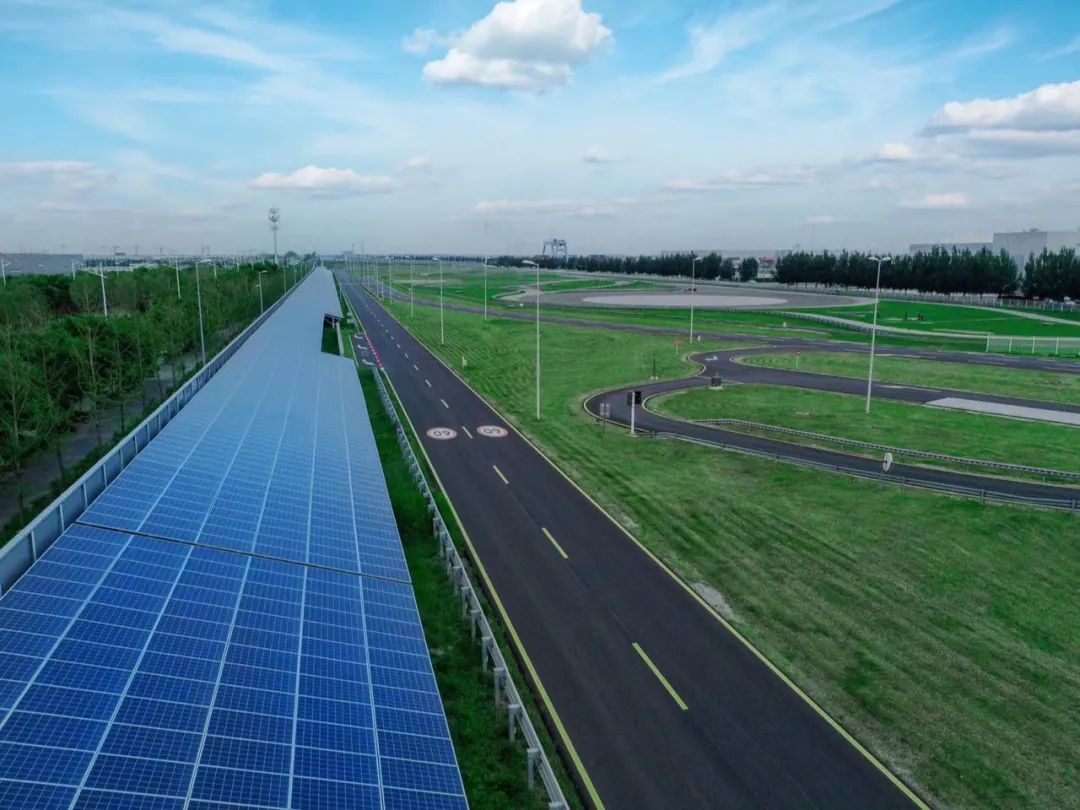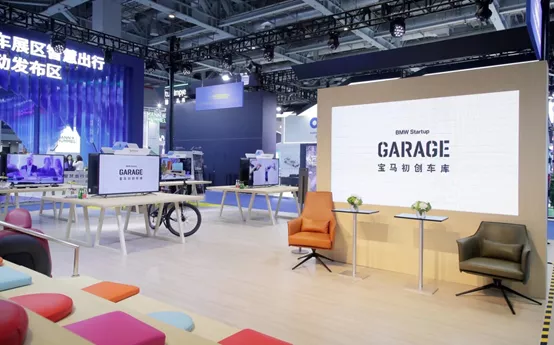A Spark and A Path
It all began with the arrival of BMW in China.
In 1994, “riding a bicycle is like driving a Santana” was a joke, and nobody thought that “driving a BMW” would become a new dream in the near future. Nine years later in 2003, BMW Brilliance Automotive was established in Shenyang, marking the start of a grand spectacle in the Chinese automotive industry.
BMW became an important player, witness, and creator in this epic story of a country rising up and overhauling its industrial landscape. Looking back on the journey from the end of 2021, it’s impossible not to be filled with emotion. History has written numerous scenes of struggle and greatness, from the surging Yangtze River to the competing boats on a hundred streams.
As an indispensable and prominent automaker amidst this struggle and greatness, BMW has many stories to tell. However, in the “Welcoming the New Year Online Conference 2022,” Dr. Peter, the global CFO of BMW Group, chose to deliver a message that strikes at the heart: “It’s difficult for a person to achieve much on their own, but it’s easier for a group to move forward together.”
Many people in China can identify with this sentiment. BMW has always felt a strong sense of responsibility and mission to join hands with a nation pursuing national rejuvenation in this epoch of history, and nobody can stop the nation’s determination to move towards the future.
This determination has always been at the core of BMW’s values, both in the past and present. “China is Home” has become the theme of BMW Group’s latest strategic upgrade in China, after affirming the “In China, For China” strategy in 2018 and upgrading it to “In China, For the World.”
“China first” is a commitment that weighs a ton.
A Prosperous Industry Creates a Thriving City
Recalling the story of 2003 feels like a distant memory, but the President and CEO of BMW Brilliance Automotive, Dr. Weilande, who plays “Cang Hai Yi Sheng Xiao” on the guzheng (an ancient Chinese instrument), always looks back with a sense of nostalgia.”Just like a child, we were born and raised in Shenyang,” he said, noting that the most wonderful thing about Shenyang is the “speed of change.”
Prior to this, some media outlets have evaluated Shenyang’s industrial revival as “developing a city through the growth of one industry, not an empty promise.”
Starting from the first shovel of soil, BMW has made a huge contribution to the industrial revitalization and development of Shenyang and Liaoning in 19 years. Dr. Wei Lande shared some data, stating that in the past 15 years, Brilliance BMW has always been Shenyang’s largest taxpayer, with last year’s tax revenue reaching 38 billion yuan.
Tax numbers are just a glimpse. Throughout these years, a keyword has always accompanied BMW’s development, which is “China first.”
BMW has always kept its corporate strategy in line with China’s development goals, adhering to the principle of “China first.” From the traditional era of gasoline-powered cars, this principle has been engraved in BMW’s DNA.
As for products that are closest to the market and consumer perception, BMW has done its homework for each product launch, and “consumer demand” is also a promise.
2003 was known as the start of China’s car market booming for ten years, and those who came to China seeking gold had lofty ambitions. “To dominate the world, one must first win in China.”
China’s struggling car market was suddenly brought under the global spotlight. BMW was keenly aware of the importance of China’s market.
After conducting a lot of market research, BMW carefully selected the first domestically produced model as the BMW 3 Series. Some have said, “No matter what age, one’s life is never without a BMW 3 Series.” For many people, the BMW 3 Series is the epitome of BMW’s athletic spirit. Indeed, many people’s concept of luxury sports cars comes from BMW.
Some have said that BMW has shaped new automotive cultural concepts for Chinese consumers. This is not an empty promise. In the traditional gasoline-powered car sector, BMW has also repeatedly proven this approach with multiple models.
In the years ahead, whether it is the domestic production of the BMW 5 Series or the generation change of the BMW 3 Series, the BMW Group will continue to follow this principle, respecting the expectations of Chinese customers, and designing every model to be in sync with the needs of Chinese consumers.Since 2013, the Chinese market has rapidly become the largest single market for BMW worldwide, with sales steadily increasing and annual growth rate multiple times exceeding the average level, thanks to BMW’s highly valued and sustained investment in the market. Today, the proportion of sales in the Chinese market accounts for nearly 35% of BMW’s global sales.
“Every three cars are delivered to Chinese customers,” Dr. Peter said, highlighting the importance of Sino-German trade.
When it comes to asking locals in Shenyang which companies they favor, BMW often ranks near the top. Not only has it been the largest taxpayer in Shenyang for many years, but it has also played a huge role in revitalizing the economy of Liaoning. From a set of data, BMW’s contribution to the Chinese economy can be seen, as the BMW Group has about 600 dealers and more than 460 parts suppliers in China. In 2020 alone, BMW Brilliance Automotive (BBA) purchased more than RMB33 billion from local suppliers in Shenyang, which created significant momentum for local economic development.
“The modernization of the Northeast Industry was clearly perceived by me through BMW,” locals in Shenyang said.
“During the 30-plus years I worked at BMW, I visited factories around the world, but Shenyang’s production base was groundbreaking,” Dr. Wei Lande said, filled with emotion.
He has always emphasized that the average age of all employees in BMW Brilliance Automotive (BBA) is less than 33 years old, which makes it a highly dynamic team. With BMW’s development, this historic city of Shenyang is constantly revitalized.
As a representative of the German automobile industry, BMW’s cooperation with BBA has not only become a model for the global automobile industry but also a deep integration between Germany Industry 4.0 and China Made 2025. Therefore, the industry has highly praised BBA as the leader in global automobile industry reform, innovation, and transformation upgrading and as the pioneer of the revitalization of Northeast China’s old industrial base.
Today, BMW’s Shenyang production base has become a model of Industry 4.0 technology applications, with next-generation production technologies such as big data and artificial intelligence widely used. It has achieved global leading 5G network coverage, making it a model for intelligent manufacturing and sustainable production in China. “This is the largest production base for BMW Group worldwide.”
In these 19 years, China’s auto market has undergone significant changes, from exploration and growth to restlessness and transformation. And in this turbulent era, BMW has continuously adjusted its strategy, personnel, and products to stay ahead. But there is one thing that has remained unchanged – “firmly walking with China.”## BMW: Dual-track Development of Electrification and Digitization
The story of traditional fuel cars continues, while the wave of intelligent transformation is surging.
As European and American car companies continue to promote their electrification strategies, Toyota has begun a new round of competition with German car manufacturers around the world. The ambitious people of Wolfsburg are brewing the possibility of continuing to lead the global automotive industry for the next 10 years.
Ten years ago, “China was the most important.” Ten years later, the world is still focusing on China.
“It has become an industrial consensus that China has become the global leader in electric vehicles and a key driving force for digitization.” pointed out by Jolyon Nash, CEO of BMW Group Greater China.
BMW is well aware of how to understand Chinese consumers – something they have been good at since the era of fossil fuel cars.

In this era of intelligence, the transformation of traditional giants seems to be a bit slow. “Tesla wants to make the Model T of the electric era. NIO wants to make the Audi-Benz-BMW of the electric era.” Everyone has ambitious plans and is ready to overthrow the order that the old players have built for many years.
At the same time, the target of carbon neutrality and peak carbon emissions has become a new development strategy for China. The key is to firmly promote high-quality growth and advocate for a circular economy. The timing and effectiveness of the timeline and transformation turning point have placed the four words of “urgent” in front of the traditional giants.

Everyone is looking for answers in the new era, but what is the answer? No one knows. While Volkswagen is “All-in” on electrification, and new players are pursuing all possible routes, BMW, which has laid out electric cars early on, has come up with a well-thought-out answer.
“In the process of transformation towards electrification, digitization, and sustainable development, China is the best choice and the optimal partner.” The BMW Group’s China Strategy Upgrade can be described with a “simple” string of numbers:
“1” refers to the “China First” principle;
“2” is that both the BMW and MINI brands must take root in China;
“3” is the firm transformation along electrification, digitization and sustainability;
“4” of which is the four R&D and digitization bases located in Beijing, Shanghai, Shenyang, and Nanjing.”5″ refers to the 5 BMW pure electric vehicle models that will be presented to Chinese customers in 2022.
“2025” represents the “New Generation” model that will arrive in 2025.
“200 million” and “1.5” respectively represent BMW Group’s decarbonization target and commitment to the Paris Agreement’s 1.5-degree temperature control target by 2030.
This series of numbers and plans outline the outline of BMW’s electrification strategy.
Firstly, accelerate electrification. In 2021, BMW iX3 is expected to sell up to 20,000 units in its first complete sales year. In 2022, 5 pure electric vehicle models will be presented to Chinese users, including the innovative BMW iX, the innovative BMW i4, and the pure electric BMW 3 Series produced in Shenyang. In addition, another pure electric flagship model will also be launched in the coming year. By 2023, BMW Group will offer about 13 pure electric vehicle models in China. 2025 will be an important milestone in BMW’s strategic transformation, and a quarter of BMW’s sales in the Chinese market will be pure electric vehicles by then.
Secondly, continue to invest in China. Currently, BMW has four research and development and digitization bases in China, which has built the largest research and digitization system outside Germany, with a team of more than 1,800 people, including about 600 software developers. The innovative base in China aims to translate customer desires and needs into competitive products while tapping the potential of Chinese technology. Next year, BMW will complete three new or upgraded new factories in Shenyang and Zhangjiagang. In addition, BMW is continuing to upgrade its nationwide sales and service network.
At the same time, BMW is constantly strengthening its partnerships with excellent domestic battery companies, energy companies, and high-tech companies, jointly developing the upstream and downstream industrial chain of green electric travel, and enhancing its overall strength in electric vehicle research and development, production, and service.
The development of China’s automobile industry, from the industrial system to artificial intelligence, and from traditional manufacturing to the internet of everything, is gradually upgrading the industry, and the digitization process is moving towards the forefront of the world.From the perspective of strategic breadth, BMW has built a comprehensive strategy to adapt to the digitization process, which not only covers product services, but also delves into the organizational structure and corporate culture. “Digitization is not only about technology, but also about changes in operations management and corporate thinking,” said Gao Le. The journey is long and arduous, and BMW is fully committed to this journey.
Full commitment does not entail going it alone. At this moment when the traditional industry is being transformed, divided, pained, and sublimated, BMW has become a spark and a pathfinder, seeking to work with “tech entrepreneurs” through the “BMW Startup Garage Project” to promote the upgrading of China’s intelligent era.

“Innovation is the key to China’s high-quality development and the current focus of China’s development. China has many world-class technology companies and a large number of passionate young tech entrepreneurs,” said Gao Le. In 2015, BMW established the “BMW Startup Garage” globally, which not only helps innovative companies enter the automotive market, but also serves as a bridge portal for BMW’s various business sectors to access cutting-edge technology.
If electrification transformation is the key step for car companies to break through, then digitization and innovation are macro trends under the national strategy.
“Pathfinder” BMW is running in parallel.
This article is a translation by ChatGPT of a Chinese report from 42HOW. If you have any questions about it, please email bd@42how.com.